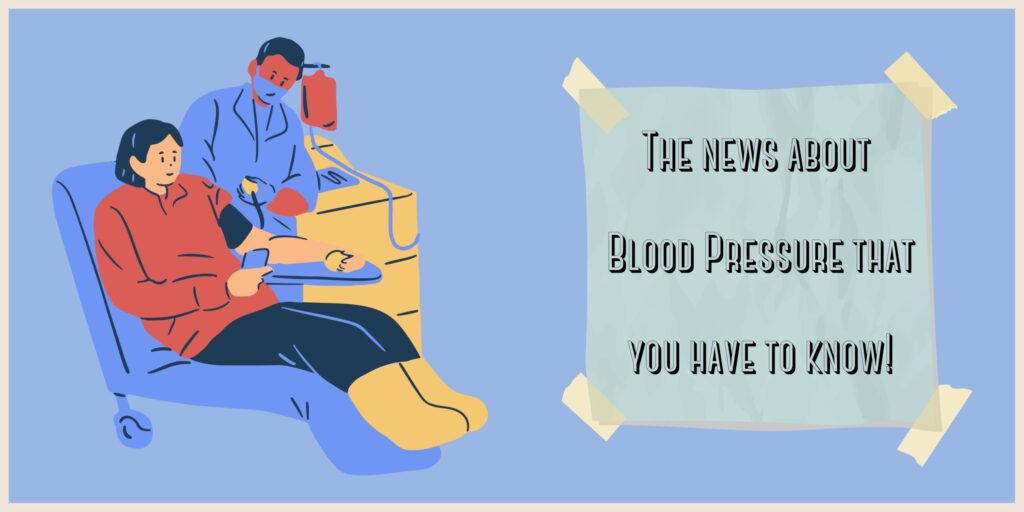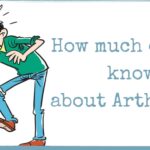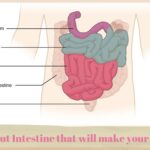Causes of blood pressure
The causes of blood pressure, symptoms, prevention and treatment are discussed in greater detail in this post. Blood pressure is the power exerted by your blood as it passes through your body’s arteries. Arteries are the blood passages that connect the heart to the remaining part of the body. When the heart pumps, blood is pushed through the arteries. As blood rushes through your arteries, it exerts pressure on their walls and is referred to as blood pressure. High blood pressure (sometimes termed hypertension) occurs when your blood flows faster than usual via your arteries. Numerous factors can contribute to high blood pressure. If your blood pressure becomes abnormally high or remains unusually high for an extended period, it might create health complications. Unregulated high blood pressure increases your risk of strokes, cardiovascular illness, cardiac arrest, and renal failure. Primary hypertension and secondary hypertension are the two forms of high blood pressure.
Causes of blood pressure
High blood pressure can be caused by diet, medication, lifestyles, age, and heredity, and your doctor can help you figure out what’s causing yours. High blood pressure can be caused by a number of circumstances, including older age: As you grow older, you’re more prone to get high blood pressure and family history, especially if your parents or other near relatives have high blood pressure. The causes of blood pressure encompass becoming overweight or obese. Chronic illnesses like renal and hormone disorders, diabetes, and high cholesterol may also be blamed. Heavy blood pressure can also be caused by a lack of physical exercise and a diet high in salt, fat, and cholesterol. A person’s race, as well as some birth control pills and other medications, can contribute to high blood pressure. Non-Hispanic blacks are more likely than people of different ethnicities to get high blood pressure. Alternatively referred to as essential hypertension, primary hypertension occurs when there is no recognised reason for your elevated blood pressure. This is the most prevalent type of hypertension, and it often develops over the years. It’s most likely a product of your habits, surroundings, and how your body ages. Secondary hypertension occurs when a health issue or medication causes high blood pressure. Secondary hypertension can be caused by various factors, including certain medications, thyroid or adrenal gland issues, sleep apnea, and kidney difficulties.
Symptoms of blood pressure
The majority of persons with hypertension exhibit no symptoms, and this is why it is occasionally referred to as “the silent killer.” It is critical to get your blood pressure examined on a regular basis. With high blood pressure, some patients feel headaches, nosebleeds, or difficulty of breath. Nevertheless, these symptoms can be mistaken for a variety of different conditions, whether serious or not. Typically, these symptoms manifest after blood pressure has risen alarmingly excessive over an extended length of time. The causes of blood pressure comprise stress and anxiety. Light-headedness, blood patches in the eyes that are subconjunctival haemorrhage, and flushing are all signs of extreme hypertension. Even yet, it’s possible that these signs and symptoms are due to any other health issues. The easiest way to identify if you have hypertension is to take frequent blood pressure readings, and at almost every visit, most doctors’ clinics check blood pressure measurements.
Prevention & treatment for blood pressure
Blood pressure readings are classified as normal, stage 1 hypertension, stage 2 hypertension, and hypertensive crisis. The causes of blood pressure include the use of tobacco and consumption of excessive alcohol. Normal blood pressure is determined as a measurement of less than 120/80 mm Hg on a blood pressure monitor. Elevated blood pressure, often known as prehypertension, is defined as a systolic pressure of 120 to 129 mm Hg and a diastolic pressure of less than or equal to 80 mm Hg. Elevated blood pressure tends to worsen over time unless measures to regulate it are adopted. Stage 1 hypertension is defined as a systolic pressure of 130–139 mm Hg or a diastolic pressure of 80–89 mm Hg. Stage 2 hypertension is defined as a systolic blood pressure of 140 mm Hg or greater or diastolic blood pressure of 90 mm Hg or above. A blood pressure reading greater than 180/120 mm Hg is considered an emergency and requires immediate medical attention. If this results from your blood pressure reading at home, spend five minutes and recheck. Consult your doctor instantly if your blood pressure remains this high. Contact your local emergency medical service if you are also experiencing heart discomfort, eyesight issues, numbness or weakness, difficulty breathing, or any other indications or signs of a stroke or heart attack. Natural methods of lowering blood pressure include reducing alcohol use, maintaining a healthy weight or dropping weight if you are overweight or obese, engaging in routine physical exercise, and consuming a heart-healthy, low-salt diet.



